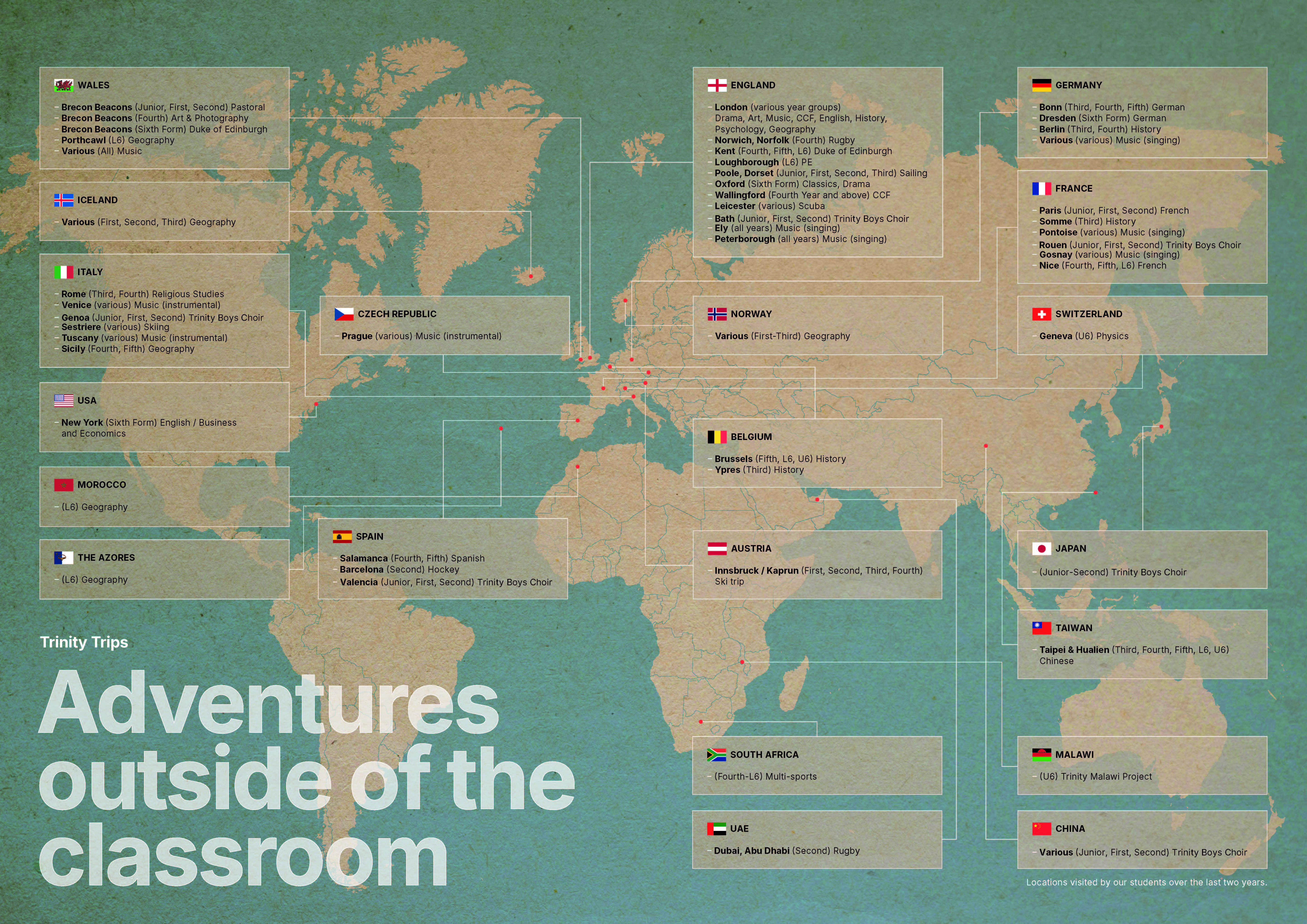
3 minute read
Adventures outside of the classroom
Key benefits of learning outside the classroom
Real-world application:
Stepping out of the classroom allows students to apply theoretical knowledge, deepening their understanding, like on geography field trips, science or maths trips to institutions.
High engagement:
Activities such as field trips and hands-on projects are more stimulating and enjoyable, leading to a deeper interest and better retention of information.
95% of schools surveyed said outdoor learning made lessons more enjoyable (Defra’s Natural Connections, 2016)
Developing soft skills:
Collaboration, communication, problem-solving, and critical thinking are all enhanced through outdoor learning. These are important skills for personal and professional success.
72% of children said they got on better with others when learning outdoors (Defra’s Natural Connections, 2016) and 93% of schools said outdoor learning improves students’ social skills.

Environmental awareness:
Outdoor learning fosters a connection to nature, encouraging environmental awareness and a sense of responsibility towards the planet.
95% of teachers involved in a Natural England Study reported that outdoor learning leads to a greater understanding of nature.

Interdisciplinary learning:
Real-world settings integrate multiple subjects, providing students with a comprehensive and interconnected understanding of the world. A trip to Iceland can expose students to dramatic geological formations, glacial landscapes and volcanic activity, tying geography to the science curriculum. Similarly, a trip to South Wales may link industrial history to environmental studies.

I not only found myself getting closer to the other musicians but becoming more independent and confident with my performance preparation.

I shall remember the trip for the rest of my life. We experienced the differences in our school systems and tried culturally important activities including martial arts and calligraphy.
Cultural and social awareness:
Exposure to diverse environments and communities cultivates empathy, tolerance, and a broader worldview. Local and international trips enhance this exposure, providing different perspectives. Longer trips allow for a deeper immersion and more transformative experience. This can be through music, the arts, or humanities.
Creative inspiration:
Fresh perspectives can provide creative inspiration for writing or art, whether visiting a museum or gallery, or being inspired by nature.
Learning resilience and adaptability: Taking students outside of their familiar environments and routines encourages them to adapt, overcome challenges and gain independence in new experiences. Outdoor learning through initiatives like Duke of Edinburgh offer students a structured and challenging environment for personal growth.

Improving physical and mental well-being:
Outdoor activities promote physical exercise, and are proven to reduce stress, while improving mood and concentration. The University of York found taking part in outdoor, nature-based activities leads to improved mood, less anxiety, and positive emotions (2021).

Making memories:
Hands-on activities and experiential learning are more likely to be remembered than classroom lessons.
Understanding the context:
When students see the real-world applications of their lessons, the content becomes more meaningful and easier to understand, particularly in history or RS.
Learning outside the classroom creates engaging, effective educational experiences that prepare students for real-world complexities. By balancing risk and reward and exposing students to diverse environments, educators can foster personal growth, academic achievement, and lifelong curiosity.

